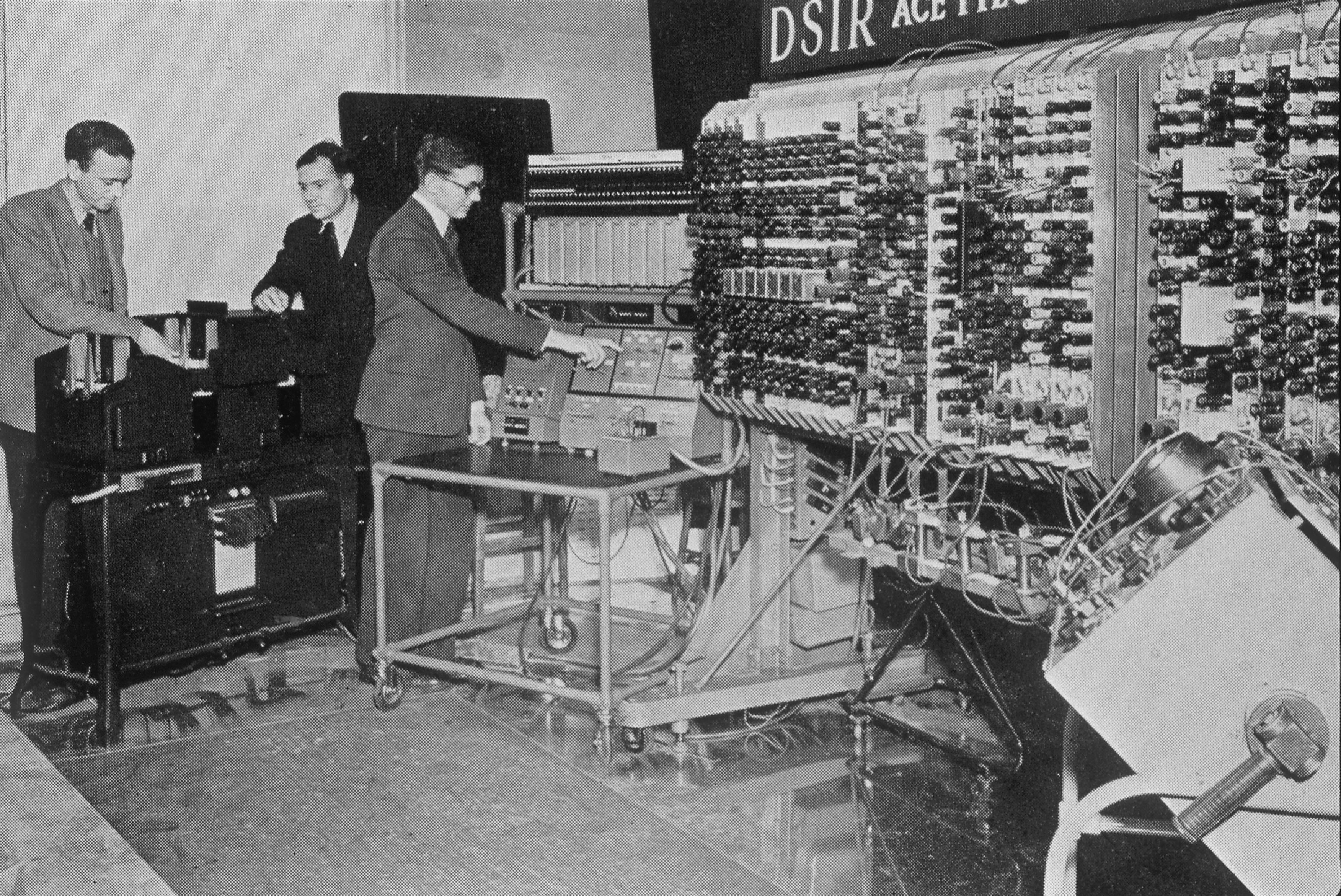During the Second World War, Alan Turing worked at the Government Code and Cipher School at Bletchley Park – the forerunner of GCHQ – where he devised the techniques which cracked the German Enigma code.
He is widely seen as the father of computer science and artificial intelligence and is credited with helping to shorten the course of the war.
Turing was born in 1912 in a nursing home in Paddington, London, another biographer Andrew Hodges has said.
Science was "an extra-curricular passion", which led him to become an undergraduate at King's College, Cambridge – and it was here that homosexuality became a definitive part of his identity, Mr Hodge said.
The biographer said a "distinguished" degree in 1934 was followed by a Fellowship of King's College in 1935 and a Smith's Prize in 1936 for work on probability theory.
Turing spent two years at Princeton University enrolled as a graduate student, arriving in September 1936, Mr Hodges has written.
The writer said that although not one of the political intellectuals of the 1930s, Turing followed current events and was influenced in studying ciphers by the prospect of war with Germany.
Upon British declaration of war on September 3, Turing took up full-time work at the wartime cryptanalytic headquarters, Bletchley Park.
By 1942, he was well established there, and seen as "shabby, nail-bitten, tieless, sometimes halting in speech and awkward of manner", according to Mr Hodges.
After the war Turing developed his strength in cross-country running with frequent long-distance training and top-rank competition in amateur athletics.
He would amaze his colleagues by running to scientific meetings, beating the travellers by public transport, and only an injury prevented his serious consideration for the British team in the 1948 Olympic Games, Mr Hodges said.
Although never secretive about his sexuality, he became more deliberately outspoken and exuberant on his return to Cambridge, the biographer wrote.
Turing was arrested and came to trial on March 31 1952, after the police learned of his sexual relationship with a young Manchester man.
Mr Hodges said he made no serious denial or defence, instead telling everyone that he saw no wrong with his actions.
Despite his achievements, in 1952 he was prosecuted for homosexuality, which was then illegal.
To avoid prison, Turing agreed to receive injections of oestrogen for a year, which was intended to reduce his libido in a process known as chemical castration.
He subsequently died of cyanide poisoning aged 41 – an inquest recorded a verdict of suicide, although his mother and others maintained his death was accidental.
In 2012, the verdict of suicide was challenged by a biographer of the computer pioneer.
Evidence gathered after the death of the scientist from cyanide poisoning in 1954 was "overlooked" and he could have died as a result of inhaling the poison he used in amateur experiments rather than deliberately ingesting it, Professor Jack Copeland claimed.
Prof Copeland, director of the Turing Archive for the History of Computing and author of a biography of the academic, spoke as events took place around the country to celebrate the centenary of the underappreciated scientific genius's birth.
"From the records I have been able to obtain, it seems to me very obvious that the inquest was conducted in a very superficial way," he said.
"The coroner didn't really investigate the evidence at all, he just jumped to the conclusion that he committed suicide.
"He seems to have been very biased from the statements in newspapers at the time."
The coroner in Turing's death case ruled he committed suicide "while the balance of his mind was disturbed", adding: "In a man of his type, one never knows what his mental processes are going to do next."
The codebreaker's 100th birthday was celebrated in 2012 with the launch of the Alan Turing Memorial Award created by the Lesbian & Gay Foundation in partnership with Manchester City Council.
The award was part of the foundation's Homo Heroes Awards, which recognise those who make a positive difference to LGBT communities and celebrate diversity.
Google's home page "doodle" was an animated representation of an Enigma decoding machine, in honour of the computer scientist.
And he trended worldwide on Twitter, with Sarah Brown, wife of former prime minister Gordon Brown, writing: "Happy 100th Birthday Alan Turing."
In 2009, Mr Brown issued an apology for the treatment of Turing after he was found guilty of gross indecency with another man in 1952.
Mr Brown said at the time: "The debt of gratitude he is owed makes it all the more horrifying, therefore, that he was treated so inhumanely."
As part of the 100th birthday celebrations, scientists and other Turing aficionados gathered in Manchester, Oxford and Cambridge, among other places, to celebrate his work as part of Alan Turing Year, a wider celebration and attempt to rehabilitate him into the mainstream.
As part of the 100th birthday celebrations, scientists and other Turing aficionados gathered in Manchester, Oxford and Cambridge, among other places, to celebrate his work as part of Alan Turing Year, a wider celebration and attempt to rehabilitate him into the mainstream.





